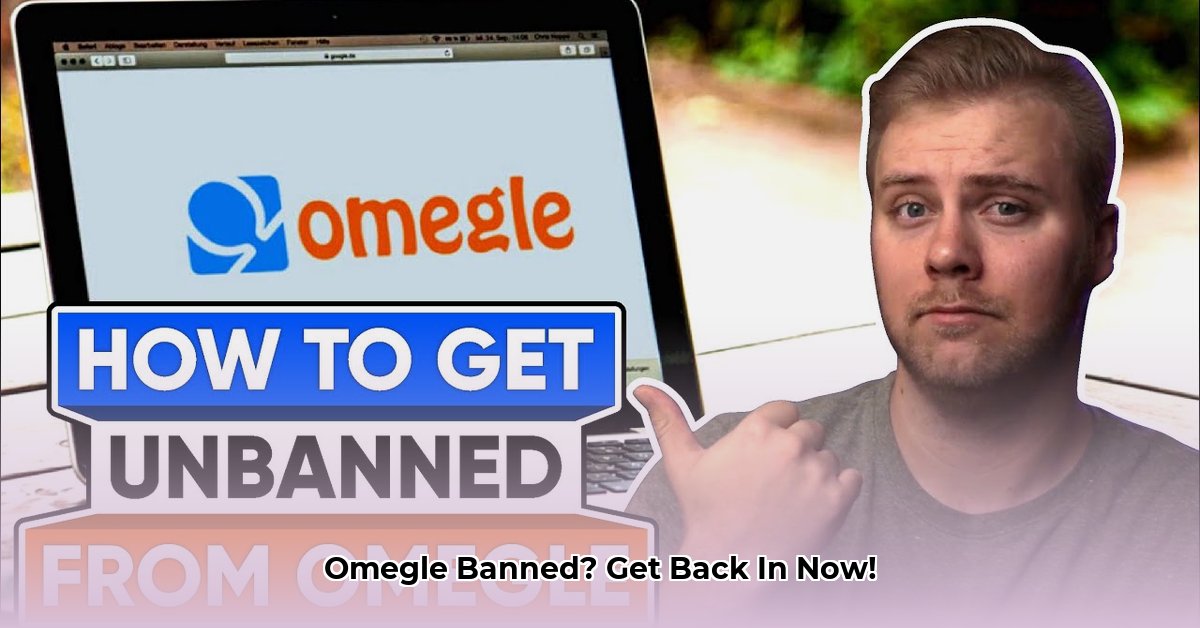
Getting banned from Omegle can be frustrating. This guide outlines several methods to regain access, focusing on effectiveness, risks, and costs. Remember: circumventing a ban violates Omegle's terms of service, so proceed cautiously.
Understanding Omegle Bans
Omegle typically bans users by blocking their IP address (your online identifier). This usually happens due to violations of Omegle's terms of service, such as inappropriate behavior or spamming. There's no official appeal process.
Method 1: The "Wait-and-See" Approach
The simplest method is to wait. Temporary bans often expire, but the duration varies. This is the safest option, but it requires patience. How long will you have to wait? It depends entirely on the severity of the violation – it could be days, weeks, or longer.
Method 2: Masking Your IP Address with a VPN or Proxy
VPNs (Virtual Private Networks) and proxy servers mask your IP address, making it seem like you're connecting from a different location. This may bypass Omegle's ban, but success isn't guaranteed.
Paid VPNs: Offer better reliability, speed, and privacy protection than free options. They also usually provide customer support. This is your best bet for regaining access.
Free VPNs/Proxies: Are often slower, less reliable, and may not effectively mask your IP. Some even track your online activity. And Omegle frequently detects and blocks them.
Pros & Cons of Paid vs. Free VPNs
| Feature | Paid VPN | Free VPN/Proxy |
|---|---|---|
| Reliability | High | Low |
| Speed | Fast | Slow |
| Privacy | Generally high, but always check | Potentially risky, might log data |
| Cost | Moderate | Free |
| Success Rate on Omegle | High | Low, often blocked by Omegle |
Method 3: Switching Internet Networks
If your home Wi-Fi is banned, try switching to mobile data or a public Wi-Fi network. This provides a new IP address, potentially bypassing the ban. However, this is a temporary solution at best.
Method 4: Obtaining a New IP Address (Advanced Users)
For technically inclined users, contacting your internet service provider (ISP) might result in a new IP address. This is not foolproof and may not always work.
Risk Assessment: The Legal and Privacy Implications
Attempting to circumvent an Omegle ban carries risks. These range from extended bans to permanent account termination. Furthermore, using unreliable free VPNs poses significant privacy risks.
Risk Matrix
| Method | Effectiveness | Privacy Risk | Legal Risk |
|---|---|---|---|
| Waiting | Moderate | Low | Low |
| Paid VPN | High | Moderate | Low |
| Free VPN/Proxy | Low | High | Moderate |
| Switching Networks | Low | Low | Low |
| New IP Address | Low | Low | Low |
"Choosing a reputable paid VPN minimizes risks," says Dr. Anya Sharma, Cybersecurity Expert at the University of California, Berkeley. "Free VPNs often compromise user security and privacy."
How to Avoid Future Bans: A Proactive Approach
The best way to avoid bans is to adhere to Omegle's terms of service. Avoid inappropriate content and interactions. Remember, responsible online behavior is crucial for a positive online experience.
Key Takeaways:
- Omegle bans usually target your IP address.
- A reputable paid VPN is your best bet for regaining access.
- Free VPNs are unreliable and increase privacy risks.
- Other methods, such as restarting your router, offer limited effectiveness.
- Appealing a ban is generally unproductive.
- Understanding and respecting Omegle’s Terms of Service is paramount.